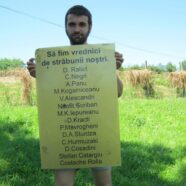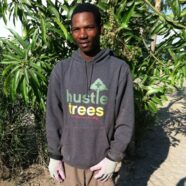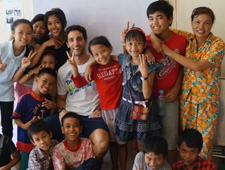People Tell the Story: Greece
It is an understatement to say that Greece has fallen on hard times. The economic crisis has left it’s traces all over the streets, but the Greeks are doing the best they can to struggle their way out of it. The government may seem corrupt and untrustworthy, but it’s people are a very deep-rooted and family-oriented bunch. We saw closed storefronts, run-down buildings, demonstrations and riot police in Athens. Quiet streets, empty-restaurants and unoccupied beaches on the islands. But none of that seemed to deter the locals from being outwardly generous, hospitable and friendly. We felt an immediate connection to those we met and can only hope their return to the better comes as soon as possible.
People Tell the Story: Romania
People Tell the Story: Ukraine
As Oksana references in the interview below, the people of Ukraine will move mountains for you. Language barrier or not, Ukrainians seemed to be gentle, friendly once you get past their stern faces, and extremely loyal and dedicated to their family, friends and fellow countrymen. Unlike other countries where many farmers have migrated to the bigger cities, Ukrainians still value a strong balance of their traditional way of life. It is not part of the Ukrainian culture to smile at or interact with a stranger on the street. In fact, Kat and I initially had the impression that the people were a bit standoffish. However, after having a few key interactions with locals during our long travel days and after living with a doting family in the countryside, we were able to get past their cold exteriors and realize that Ukrainian people are some of the friendliest we have encountered on this trip.
Read MorePeople Tell the Story: South Africa
When it comes to the history of racial segregation, South Africa’s is still very recent. From 1948 to 1994, legislation known as Apartheid divided citizens into four different racial groups – natives or black Africans, whites, coloured (mixed race), and Asians. Although deep segregation ended almost twenty years ago, there is still a stark sense of separation among its people. But, according to some people that we spoke with, it seems to be a separation that is mutually acceptable. This outlook made for an interesting lesson into the past and present state of South Africa’s people.
Read MorePeople Tell the Story: Namibia
The people of Namibia were. . . .wait, what people? The country’s vast and harsh landscape is inhabited by only around 2.3 million people, making it one of the least densely populated countries on the planet. Yet, although the population is small, the eclecticism and diversity of its people are quite large. With more than eleven ethnic tribes, and a history that includes German colonization (1884-1915) and apartheid influence from its Afrikaner neighbors in South Africa (Namibia gained independence from South Africa in 1990), the people of Namibia were very interesting to learn about.
Read MorePeople Tell the Story: Zambia
The people of Zambia seemed to be a mix of confident and shy. Lively and reserved. But all extremely welcoming. When they saw us, some would run and wave from a distance while others sat back, curious as to who we were and what we were doing there. And once they felt comfortable, they were eager to talk, but in a way unlike I’ve experienced along our trip. Although they wanted to ask questions about America like every other African we’ve met, they mainly wanted to just be around us and hang out. They didn’t ask to come back with us to the states, but rather just wanted be good friends for the time we were there (and in the future).
Read More









